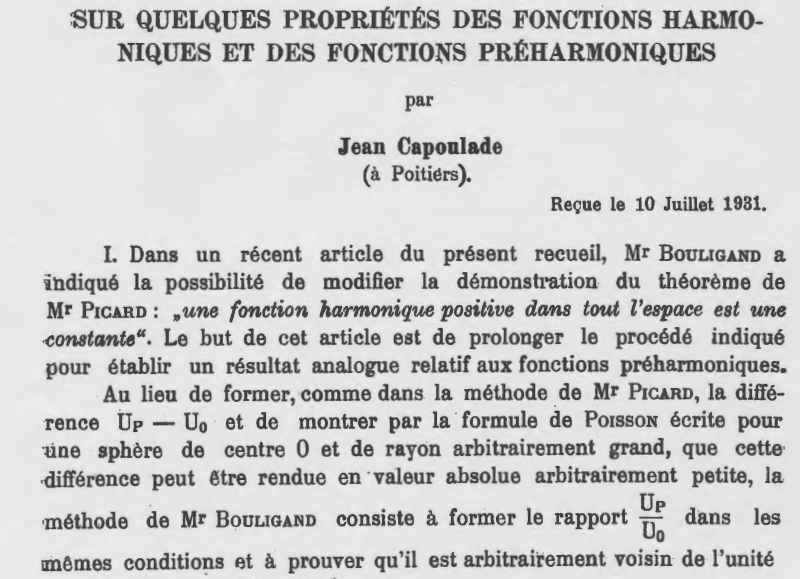It is known that discrete Liouville's theorem for harmonic functions on $\mathbb{Z}^2$ was proved by Heilbronn (On discrete harmonic functions. - Proc. Camb. Philos. Soc. , 1949, 45, 194-206).
If a bounded function $f : \mathbb Z^2 \rightarrow \mathbb{R}$ satisfies the following condition $$ \forall (x, y) \in \mathbb{Z}^2,\quad f(x,y) = \dfrac{f(x + 1, y)+f(x, y + 1) + f(x - 1, y) +f(x, y - 1)}{4}$$ then f is constant function.
(A stronger version of discrete “Liouville's theorem” also follows from Heilbronn's proof.)
But recently I knew from Alexander Khrabrov that there is an older article of Capoulade with almost the same result (Sur quelques proprietes des fonctions harmoniques et des fonctions preharmoniques, - Mathematica (Cluj), 6 (1932), 146-151.)
Unfortunately the last article is not available for me. Does anybody have an access to this paper? Is this really the first proof discrete Liouville's theorem?
(This question is inspired by Liouville Theorem from Mathematics)

